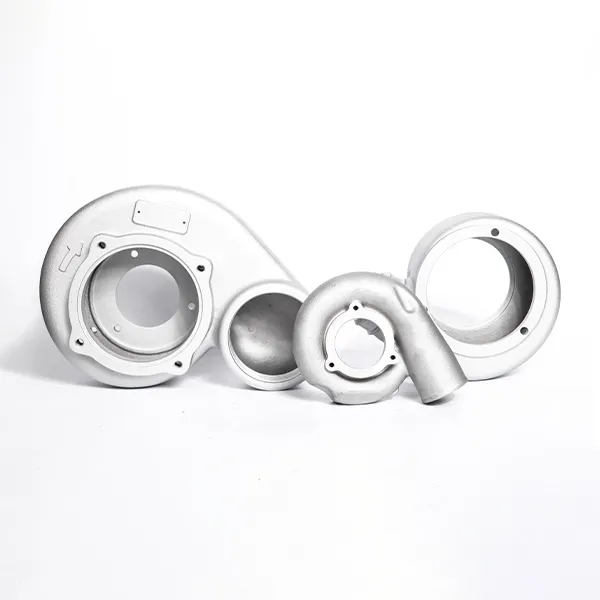Mobile:+86-311-808-126-83
Email:info@ydcastings.com
Jan . 09, 2025 11:15
Back to list
Understanding the Impeller on Pump Functionality
The efficiency of a pump largely hinges on its impeller, a critical component that directly affects system performance, energy consumption, and maintenance requirements. In the realm of fluid dynamics and pump technology, the impeller is often regarded as the heart of the pump, dictating how effectively fluid is transported from the suction point to the discharge outlet.
Real-world experiences underscore the importance of regular maintenance and monitoring. Over time, even the best-engineered impellers can succumb to wear and tear. Visual inspections, performance monitoring, and routine maintenance schedules are essential practices that safeguard against unexpected failures. For instance, experienced engineers often employ vibration analysis and thermographic inspections to detect subtle changes in performance, enabling proactive maintenance rather than reactive repairs. In the pursuit of energy efficiency, upgrading to more advanced impeller designs can yield significant benefits. Innovations in impeller technology include the development of dual- and multi-phase impellers, which accommodate varying fluid viscosities and improve energy conservation. Such upgrades not only enhance pump performance but also align with sustainability goals by reducing energy consumption, thereby lowering operational costs and environmental impact. For industrial operators seeking expert guidance, collaborating with pump specialists ensures that impeller selection is not a mere afterthought but a strategic decision grounded in expertise. These experts provide authoritative advice, translating complex technical data into actionable insights. In doing so, they bolster trustworthiness through proven track records of success and adherence to industry standards. Ultimately, the choice and maintenance of the impeller significantly impact the efficiency and reliability of the entire pump system. By prioritizing a balance of design, material choice, and ongoing maintenance, operators can ensure that their pump systems remain at peak performance, thus supporting both operational and business objectives effectively.


Real-world experiences underscore the importance of regular maintenance and monitoring. Over time, even the best-engineered impellers can succumb to wear and tear. Visual inspections, performance monitoring, and routine maintenance schedules are essential practices that safeguard against unexpected failures. For instance, experienced engineers often employ vibration analysis and thermographic inspections to detect subtle changes in performance, enabling proactive maintenance rather than reactive repairs. In the pursuit of energy efficiency, upgrading to more advanced impeller designs can yield significant benefits. Innovations in impeller technology include the development of dual- and multi-phase impellers, which accommodate varying fluid viscosities and improve energy conservation. Such upgrades not only enhance pump performance but also align with sustainability goals by reducing energy consumption, thereby lowering operational costs and environmental impact. For industrial operators seeking expert guidance, collaborating with pump specialists ensures that impeller selection is not a mere afterthought but a strategic decision grounded in expertise. These experts provide authoritative advice, translating complex technical data into actionable insights. In doing so, they bolster trustworthiness through proven track records of success and adherence to industry standards. Ultimately, the choice and maintenance of the impeller significantly impact the efficiency and reliability of the entire pump system. By prioritizing a balance of design, material choice, and ongoing maintenance, operators can ensure that their pump systems remain at peak performance, thus supporting both operational and business objectives effectively.
Latest news
-
Why Should You Invest in Superior Pump Castings for Your Equipment?NewsJun.09,2025
-
Unlock Performance Potential with Stainless Impellers and Aluminum End CapsNewsJun.09,2025
-
Revolutionize Your Machinery with Superior Cast Iron and Aluminum ComponentsNewsJun.09,2025
-
Revolutionize Fluid Dynamics with Premium Pump ComponentsNewsJun.09,2025
-
Optimizing Industrial Systems with Essential Valve ComponentsNewsJun.09,2025
-
Elevate Grid Efficiency with High-Precision Power CastingsNewsJun.09,2025
Related PRODUCTS











